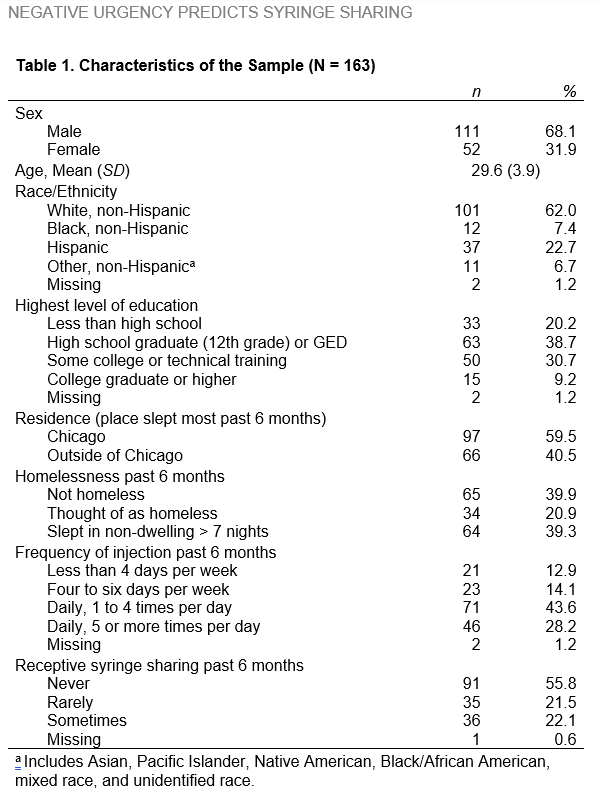Dr. Mary Mackesy-Amiti’s investigates the commonality between borderline personality disorder (BPD) with people who inject drugs (PWID), and its association with receptive syringe sharing. Dr. Mackesy-Amiti’s study utilized ecological momentary assessment (EMA) to examine associations between emotion dysregulation, a characteristic of BPD, as well as patterns of negative affect and receptive syringe sharing among PWID.
Participants used the mEMA phone app to respond to momentary surveys on mood, substance use, and injection risk behavior for 14 days. For each momentary assessment, mood ratings were averaged for negative mood descriptions to create measures of total negative affect and negative affect components of dejection, shame, anger, irritability, and worry. Receptive syringe sharing (RSS) was defined by participant mEMA survey responses indicating they had used a syringe that someone else had previously used.
Using the mEMA software Dr. Mackesy-Amiti’s team estimated multilevel mixed logistic models, regressing RSS on baseline negative urgency impulsivity score, lagged momentary negative affect, and the interaction term. As a result from using the mEMA application, the study revealed that participants with high negative urgency, combined with worried mood in the hours preceding the injection event, predicted increased risk of receptive syringe sharing. Additionally, it was found that PWID having difficulties with emotion regulation may be at increased risk of receptive syringe sharing during periods of anxiety.

Mary E. Mackesy-Amiti, PhD
Research Assistant Professor at the University of Chicago


